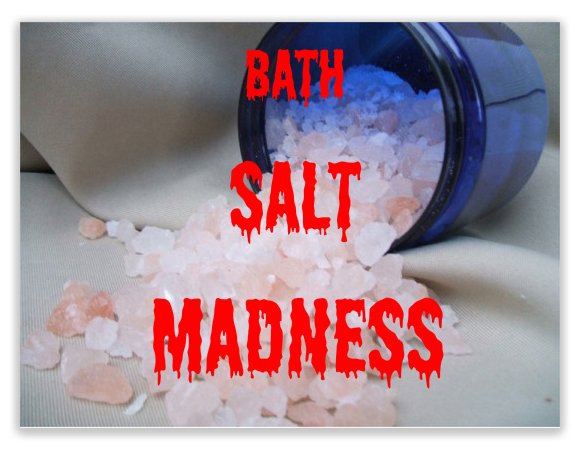We post news and comment on federal criminal justice issues, focused primarily on trial and post-conviction matters, legislative initiatives, and sentencing issues. Today, a few short takes from last week’s federal criminal news…

CASE SHORTS
Hobbs Act Robbery “Violent Crime” in Another Circuit: The 1st Circuit last week held that Hobbs Act robbery is a crime of violence under 18 USC 924(c), a statute that sets extra punishment for carrying or using a gun during a crime of violence. The Circuit joins a number of others that have reached the same conclusion.
United States v. Garcia-Ortiz, Case No. 16-1405 (1st Cir. Sept. 17, 2018)

 DEA Takes a “Bath” in Analogue Case: In a case full of organic chemistry and implications for the regulatory state, the 6th Circuit held that the DEA rules criminalizing the possession of a “positional isomer” of a banned drug require the rule of lenity to be applied. The rule of lenity is a principle of criminal statutory interpretation that requires a court to apply any unclear or ambiguous law in the manner most favorable to the defendant. In this case, the defendant was tried for possessing ethylone, which under the DEA definition was a “positional isomer” of butylone, a scheduled drug. The problem was that under one of several accepted scientific definitions of “positional isomer,” ethylone is not a positional isomer of butylone at all. The Court ruled that where there was more than one definition, and the DEA rules were unclear what definition was to apply, the defendant gets the benefit of the less restrictive definition under the rule of lenity.
DEA Takes a “Bath” in Analogue Case: In a case full of organic chemistry and implications for the regulatory state, the 6th Circuit held that the DEA rules criminalizing the possession of a “positional isomer” of a banned drug require the rule of lenity to be applied. The rule of lenity is a principle of criminal statutory interpretation that requires a court to apply any unclear or ambiguous law in the manner most favorable to the defendant. In this case, the defendant was tried for possessing ethylone, which under the DEA definition was a “positional isomer” of butylone, a scheduled drug. The problem was that under one of several accepted scientific definitions of “positional isomer,” ethylone is not a positional isomer of butylone at all. The Court ruled that where there was more than one definition, and the DEA rules were unclear what definition was to apply, the defendant gets the benefit of the less restrictive definition under the rule of lenity.
United States v. Phifer, Case No. 17-10397 (6th Cir. Sept. 21, 2018)

Motion Claiming Juror Lied About Her Background is Structural Error: A couple of guys being tried for a pot-growing operation discovered after the trial that one juror’s son had been convicted of being a marijuana trafficker, a fact the juror concealed on her jury questionnaire. When the defendants raised the juror problem in a motion for new trial, the district court ruled there was no proof of prejudice resulting from of the juror’s false statement, because the overwhelming evidence would have convicted the defendants anyway. The 1st Circuit reversed, ruling that a biased juror would “deprive defendants of ‘basic protections’ without which a criminal trial cannot reliably serve its function as a vehicle for determination of guilt or innocence.” Thus, it is what is known as a “structural error.” Generally, a constitutional error that does not contribute to the verdict is considered harmless, which means the defendant is not entitled to reversal. However, a structural error, one which “affects the framework within which the trial proceeds,” as defined in Arizona v. Fulminante, defies harmless error analysis. When a structural error is raised on direct review, the defendant is entitled to relief without any inquiry into harm. The Circuit granted French a new trial.
United States v. French, Case No. 16-2386 (1st Cir. Sept. 17, 2018)

 Written Judgment Cannot Add Anything to Terms Imposed at Sentencing: Lincoln R. Washington was sentenced on a conviction for failure to register as a sex offender. In the judgment form entering his sentence into the record, the district court added a supervised release term that Linc submit to polygraph testing, a requirement the court had not mentioned at the sentencing hearing. The 2nd Circuit ruled last week that imposing such a duty in the written judgment without doing so during the spoken sentence was an impermissible modification of the spoken sentence, notwithstanding the fact that the Presentence Report had made reference to the polygraph requirement.
Written Judgment Cannot Add Anything to Terms Imposed at Sentencing: Lincoln R. Washington was sentenced on a conviction for failure to register as a sex offender. In the judgment form entering his sentence into the record, the district court added a supervised release term that Linc submit to polygraph testing, a requirement the court had not mentioned at the sentencing hearing. The 2nd Circuit ruled last week that imposing such a duty in the written judgment without doing so during the spoken sentence was an impermissible modification of the spoken sentence, notwithstanding the fact that the Presentence Report had made reference to the polygraph requirement.
United States v. Washington, Case No. 17-2841 (2nd Cir. Sept. 18, 2018)
 – Thomas L. Root
– Thomas L. Root
